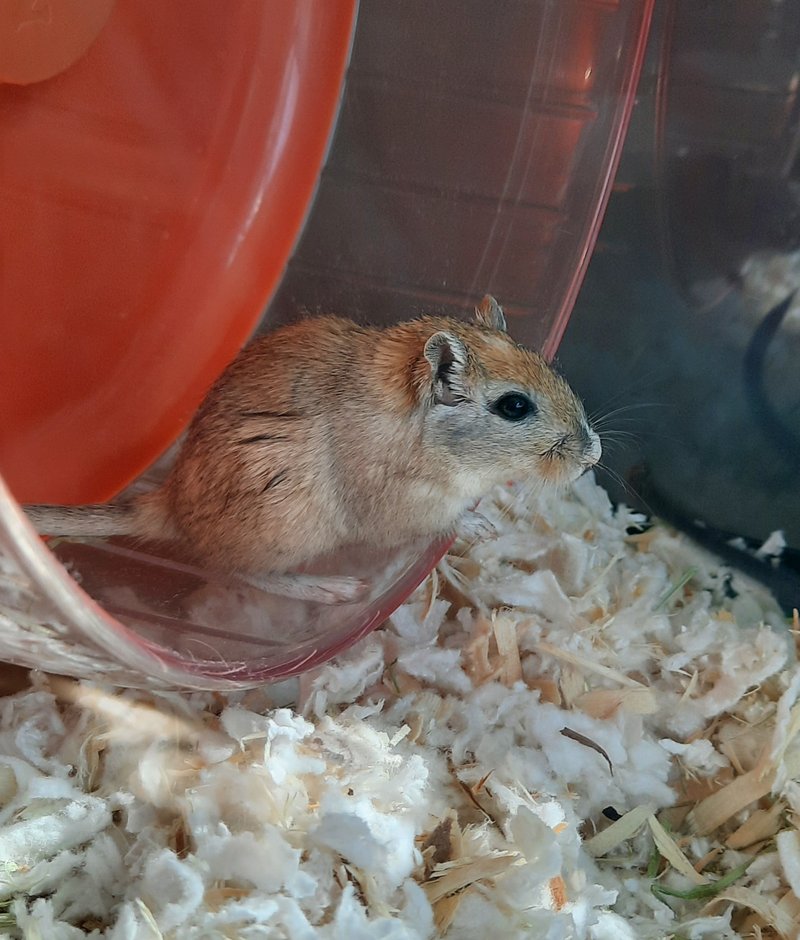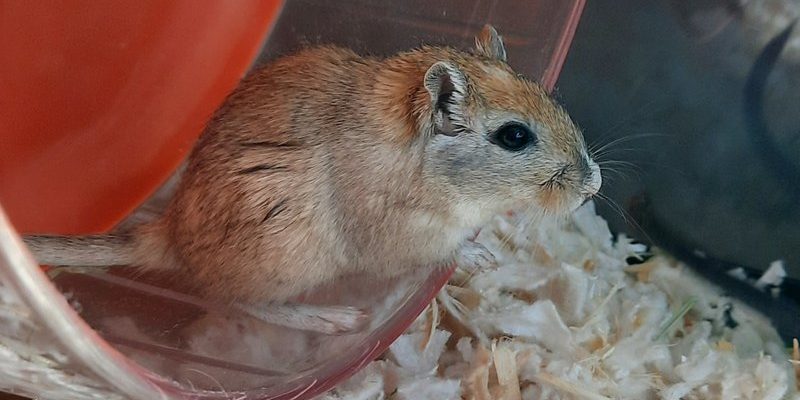
Breeding black gerbils is a rewarding experience, but it’s not without its challenges. Think of it as a puzzle: every piece matters, from choosing the right mates to caring for the little ones. You might be wondering what makes these rodents so special or how to breed them successfully. Let’s dig in and explore what new owners should know about breeding black gerbils!
Understanding Black Gerbil Traits
Black gerbils are fascinating creatures. Their coal-black fur isn’t just a fashion choice; it serves a purpose. In the wild, darker colors help them blend into their environment, providing a bit of camouflage from predators. They are curious, social, and friendly, making them great pets.
Breeding black gerbils means appreciating both their physical traits and personality. These rodents are active and love to dig and explore. If you’re considering breeding, you should observe their behavior closely. Do they get along well? Are they curious about each other? These signs can help you understand if they’re ready to mate.
When selecting gerbils for breeding, look for healthy specimens with good temperaments. Strong genetics contribute to strong offspring. You might find that black gerbils are sometimes mixed with other colors, resulting in unique patterns. Just remember, it’s not just about the color—it’s about their overall health and personality.
Setting Up the Perfect Environment
Creating a welcoming environment is crucial for breeding black gerbils. You need a spacious cage that allows them to roam freely, preferably one with levels and tunnels. Think of it as a mini adventure park for your gerbils! A good size would be around 20 gallons for a pair, ensuring plenty of room for exercise and play.
Don’t forget about bedding! Use paper-based bedding or aspen shavings to make their home comfortable. Avoid cedar or pine shavings, as they can be harmful to their respiratory systems. A cozy nesting area can make all the difference.
Finally, consider the temperature. Gerbils are sensitive to heat; keep their environment between 68°F and 72°F. Too hot, and they might become stressed, which is not ideal for breeding. Monitor humidity levels too, aiming for around 30-50%. This setup can encourage a peaceful breeding routine.
Choosing the Right Pair for Breeding
Choosing the right pair of black gerbils is like picking the best team for a relay race. You want a pair that complements each other, ensuring the health of the offspring. Start with healthy adults aged 4-6 months. This is when they reach sexual maturity and are ready to mate.
It’s essential to consider genetics here. If possible, get your gerbils from a reputable breeder who can provide background information. Look for signs of good health—clear eyes, active behavior, and a shiny coat are all good indicators.
Also, think about temperament. If one gerbil is particularly aggressive, it might cause stress during breeding, which can affect their young. You want a calm, friendly pair. Once you’ve chosen them, you can introduce them gradually in a neutral space to help them get to know each other without territorial disputes.
Understanding the Breeding Process
Breeding black gerbils isn’t just about putting a male and female in the same cage and hoping for the best. It’s a process that requires attention and care. When you’re ready, place the female in the male’s cage. They may take some time to get comfortable, so be patient.
You might see some courtship behavior, which includes chasing and grooming. This is a good sign! The actual mating can happen within a few hours. A female gerbil can become pregnant quickly, often in about 4-6 days after mating.
Once pregnant, she’ll need extra care and attention. You’ll want to provide her with a nutritious diet that includes fresh fruits, vegetables, and high-quality pellets. Strong nutrition supports the health of both the mother and her pups.
Caring for Baby Gerbils (Pups)
After about 24 days of pregnancy, the female will give birth to a litter of pups, usually between 2-6. It’s an exciting time, but it’s essential to give her space. The mother will take care of her pups, and handling them too soon can stress her out.
Keep the nesting area clean but avoid disturbing it too much. You should check to make sure the pups are healthy—look for little fur coats and active movements. As they grow, usually around three weeks old, they’ll start exploring their environment.
At around 4-6 weeks, it’s a good idea to separate the pups by gender to prevent early pregnancies. Males can breed as young as eight weeks, so stay on top of their growth and development.
Common Challenges in Breeding
Breeding black gerbils can be a delightful experience, but it’s not without its challenges. One issue new owners face is aggression. Sometimes, male gerbils can become territorial, especially if they feel threatened. Introducing them in a neutral location can help avoid this.
Another challenge is health concerns. Gerbils are generally hardy, but they can be prone to certain genetic issues, especially if inbreeding occurs. Always keep a close eye on the health of both parents and offspring. If you notice something off, reaching out to a vet experienced with rodents can be a lifesaver.
Finally, there could be times when the mother rejects her pups. This can happen for various reasons, including stress or health issues. If this occurs, you may need to step in and provide care for the pups yourself, which includes feeding them a specialized formula if they’re too young to eat on their own.
Finding Homes for Gerbils: Responsible Placement
Once the pups have grown and are ready to find new homes, it’s important to do this responsibly. A common mistake is giving them away to anyone without considering their future care. Remember, gerbils can live 2-4 years, so potential owners need to be prepared for a commitment.
It’s a good idea to spread the word among friends and family first. If you can’t find homes that way, consider local pet stores or responsible rescue groups. Always ask about the new owner’s understanding of gerbil care before finalizing any placements.
Ensuring that every gerbil finds a loving home is not just good for the pups; it reflects on you as a breeder and enthusiast. Every little furball deserves a good life!
In conclusion, breeding black gerbils can be a beautiful journey filled with learning and joy. By understanding their needs and approaching the process with care, you can create a happy home for both new owners and their future furry friends. Enjoy the adventure!

